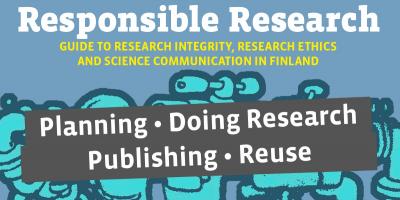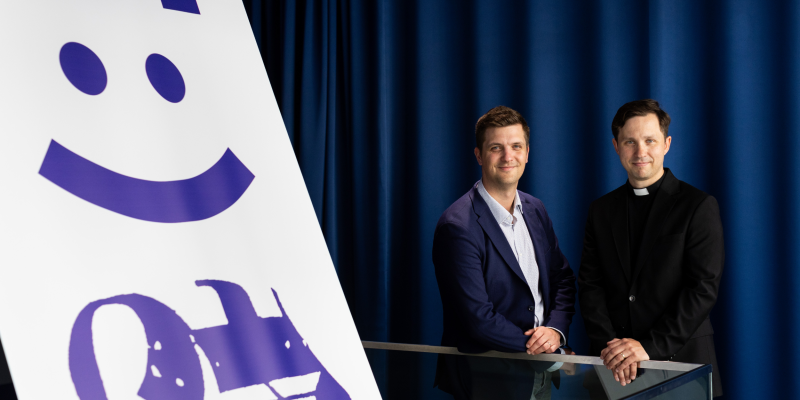
Researched knowledge is impactful, promotes public understanding of science, lays the foundation for new innovations and supports decision-making – provided that it is disseminated and utilised in multiple languages.
Multilingualism safeguards the vitality of locally relevant research and boosts the societal impact of science. Responsibly-produced research-based knowledge must be of high scientific quality, ethically sustainable, and accessible to both citizens and decision-makers.
Carrying out scientific research that is internationally competitive, impactful and high-quality is an important objective for science policy. The internationalisation of science has meant that researchers increasingly use English as the language of research and publications for scholarly communication within the scientific community. At the same time, the use and appreciation of other languages in scientific publishing has diminished.
Nevertheless, the need for multilingual scholarly communication is extensive, as over 6,500 languages are spoken in the world today.
The objective of the Helsinki Initiative on Multilingualism in Scholarly Communication is to promote the multilingual and open availability of research-based knowledge within the scientific community and society, to safeguard the operating conditions of national scientific journals and publishers that enable multilingual scientific publishing, and to ensure that research evaluation and funding systems reward and encourage multilingual scholarly communication.
Multilingual scholarly communication serves the needs of the scientific community and society as a whole
In recent years, science policy has emphasised not only internationalisation but also the importance of the societal impact and openness of science. The scientific community is expected to interact more closely with citizens. Research-based knowledge should be widely accessible and should promote public understanding of science, lay the foundation for new innovations, and support decision-making. This is only possible if scholarly communication is multilingual, meaning that the research-based knowledge is disseminated and utilised in multiple languages.
The international scientific community defines the scientific and ethical standards for research methods and data and for the reporting of results, and this lays the foundation for obtaining reliable research-based knowledge. At its broadest, the impact of research data can be global, but this impact is always realised locally in particular societies. The application of research-based knowledge also requires critical discussion and dialogue between the scientific community familiar with the local conditions and different actors within society.
The coronavirus pandemic, which began in spring 2020, has demonstrated the importance of multilingual and multidisciplinary scholarly communication. The global scientific community has rapidly produced an enormous amount of COVID-19 research, most of which have been published in English in international scientific journals. Researchers and experts have played an important role in disseminating the latest research-based knowledge in national and local languages for use by decision-makers, authorities, professionals and citizens.
National journals and publishers enable multilingual scholarly communication
International scientific publishing is controlled by large commercial publishers, some of whom may have publishing activities not only in English but also in other world languages. National publishers of scientific journals and books that operate in smaller language areas have an important task in publishing peer-reviewed, ethically sustainable research-based knowledge, particularly on research issues of local relevance. National science publishers also publish professional and non-technical publications.
In small language areas, scientific publishing is rarely a profitable business. In this context, scientific publishing is usually a non-profit activity which supports the local scientific community and multilingual scholarly communication. The publishing of scientific journals and books in national languages relies heavily on the voluntary work of researchers, and this work is often carried out by non-profit learned societies and research organisations. National scientific publishing is often also supported with public funds.
One of the most important ways to promote open science is to make all peer-reviewed scientific publications available for online reading free of charge. By doing this, however, scientific publishers in small language areas are no longer able to maintain their publishing activities through subscriptions or membership fees. The cost of making national publications openly accessible is small compared to the cost for international science publishers. For achieving the objectives of open science, it is vital to ensure the sustainable transition of national scholarly publishers to open-access publishing.
Multilingual scholarly communication must be given value in the evaluation and funding of research
Because evaluation and funding guide and direct research and the activities of researchers, multilingual scholarly communication must also be valued as something that boosts research careers and helps secure research funding. International Declarations of Responsible Assessment such as the DORA declaration and Leiden Manifesto for research metrics also emphasise that research evaluation should take into account locally relevant research and publications targeted at an audience wider than just the scientific community.
Although choosing the language of publication focuses the work on either international or local audiences, neither scientific quality nor societal impact can be assessed solely on the basis of the language of publication. Research published in different languages can be international and can meet the criteria for high-quality science. The evaluation process must also take into account the fact that the selection of experts and data sources may place the disciplines, organisations, projects or researchers under review in an unequal position based on the language of publication.
The international publication and citation databases Web of Science and Scopus enable the measurement of scientific publishing activities based primarily on English-language journal articles. The use of these bibliometric sources excludes from the evaluation studies published in other languages, and thus does not fully take into account the publishing activities of all disciplines. The language skills of expert-evaluators may also limit their ability to value high-quality research published in different languages, for example in university research assessment exercises or recruitment procedures.
Helsinki initiative recommendations for promoting multilingual scholarly communication
Science policy and the evaluation and funding of research should balance the relationship between international excellence and local relevance of research. These are mutually reinforcing dimensions of research quality. A balanced multilingualism means that all the communication needs for research activities are taken into account – including the languages required to meet these needs.
The signatories of the Helsinki initiative for multilingualism in scholarly communication propose that decision-makers, universities, universities of applied sciences, research institutes, research funders, libraries and researchers adhere to the following recommendations:
1. Support dissemination of research results for the full benefit of the society.
- Make sure researchers are merited for disseminating research results beyond academia and for interacting with heritage, culture, and society.
- Make sure equal access to researched knowledge is provided in a variety of languages.
2. Protect national infrastructures for publishing locally relevant research.
- Make sure not-for-profit journals and book publishers have both sufficient resources and the support needed to maintain high standards of quality control and research integrity.
- Ensure that national scientific journals and science publishers are able to transition to open access in a controlled and secure manner.
3. Promote language diversity in the evaluation, assessment and funding of research.
- Make sure that high quality research is valued in the process of expert-based evaluation regardless of the publishing language or publication channel.
- Make sure that when metrics-based systems are utilized, journal and book publications in all languages are adequately taken into account.
The Helsinki Initiative on Multilingualism in Scholarly Communication was launched in April 2019 by the Federation of Finnish Learned Societies (TSV), the Committee for Public Information (TJNK), the Finnish Association for Scholarly Publishing, Universities Norway (UHR) and the COST Action ‘European Network for Research Evaluation in the Social Sciences and the Humanities’ (ENRESSH). The Helsinki initiative has also been signed by the Rectors’ Council of Finnish Universities UNIFI.
Organisations and individuals can sign the initiative at www.helsinki-initiative.org.
Janne Pölönen is Head of Planning within the Publication Forum of the Federation of Finnish Learning Societies.
Further information:
Kulczycki, E., Guns, R., Pölönen J., Engels, T., Rozkosz, E. & Zuccala, A., Bruun, K., Eskola, O., Starčič, A.I., Petr, M. & Sivertsen, G. (2020). Multimodal Publishing in the Social Sciences and Humanities: A Seven-Country European Study. Journal of the Association for Information Science and Technology: https://doi.org/10.1002/asi.24336.
Kulczycki, E., Mustajoki, H., Pölönen, J & Roeggen, V. (2019). Polyglots need protection. Research Europe: https://www.researchresearch.com/news/article/?articleId=1381733.
Sivertsen, G. (2018). Balanced multilingualism in science. BiD: textos universitaris de biblioteconomia i documentació: http://dx.doi.org/10.1344/BiD2018.40.25.
You might also be interested in
Tämä teos on lisensoitu Creative Commons Nimeä 4.0 Kansainvälinen -lisenssillä. Detta verk är licensierat under en Creative Commons Erkännande 4.0 Licens. This work is licensed under a Creative Commons Attribution 4.0 International license.

